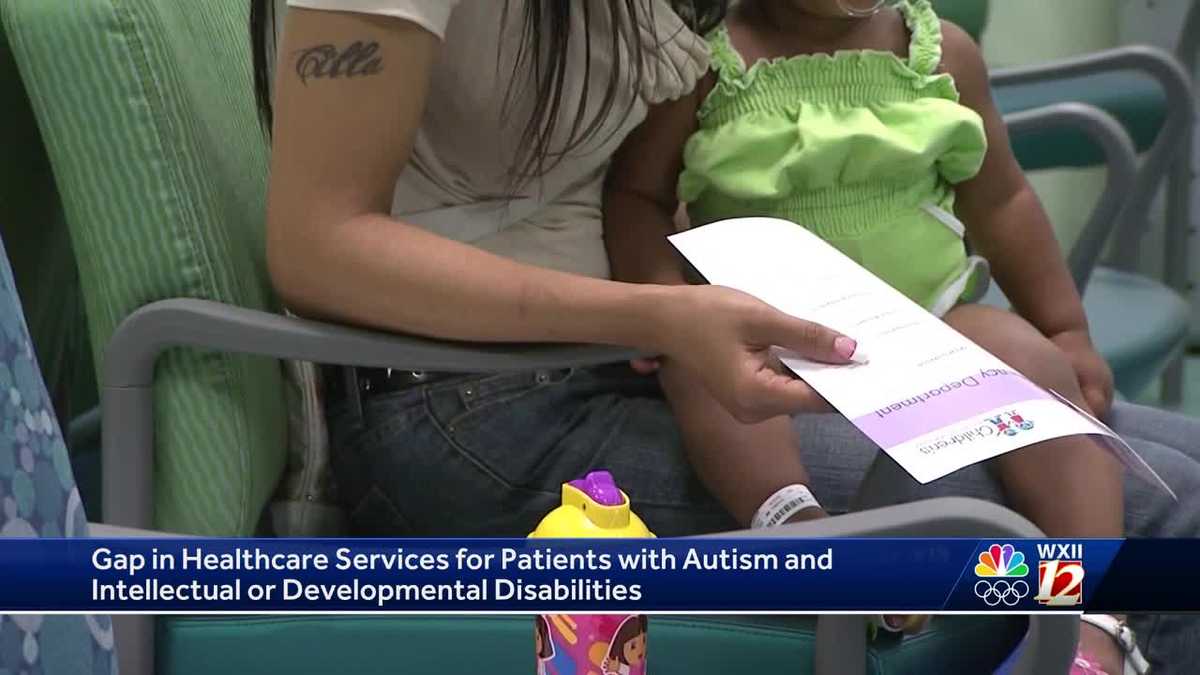The latest figures from the Centers for Disease Control and Prevention show autism and developmental disabilities are on the rise. TOP STORY: Investigators in Reidsville seek 164 felony and misdemeanor charges against gambling parlor owners and employees. Two injured after vehicle crashes into pond in Winston-Salem. Fire crews say Interstate 74 east is closed after trailer rollover. Click here to get the latest news stories. People with intellectual or developmental disabilities face serious disparities in health care services, according to doctors who specialize in the field. That disparity comes from a lack of training. Medical students train for years to become physicians, but according to Dr. Craig Escudo, there is no mandated curriculum on how to identify and communicate with people with intellectual or developmental disabilities. Download the WXII app here for the latest news and weather. “The first thing we need is awareness. We also need health care providers to recognize the need to learn about care for people with intellectual and developmental disabilities,” Escudo said. Escudo said medical education has not kept up with the increasing number of diagnoses of intellectual and developmental disabilities. According to the CDC, one in 36 children is currently diagnosed with autism. One in six children is diagnosed with a developmental disability. Escudo said that when health care professionals do not notice changes in a patient’s behavior, they often miss early signs of problems. “This is a term called diagnostic overshadowing, where early signs or symptoms of something are attributed only to the person’s overall condition, such as intellectual disability, instead of looking for the underlying condition that can be treated. Overshadowing of diagnoses is a problem.” Escudo said the problem is that medical schools do not train doctors to identify or communicate with patients with intellectual and developmental disabilities. “I’m speaking from my own experience as a family physician, I was not trained in medical school or during residency on how to provide good medical care to people with intellectual disabilities,” Escudo said. Navigate: Home | Weather | Watch NOWCAST TV | Local News | National | Favorite News |Escudo said research shows many clinicians feel uncomfortable or unable to provide the same level of care to people with disabilities as those without disabilities. Trending News:
The latest numbers from the Centers for Disease Control and Prevention reveal that autism and developmental disorders are on the rise.
Top Stories:
Click here to get the latest news that interests you
Doctors specialising in the field said people with intellectual and developmental disabilities face serious disparities in health services.
The gap is in lack of training.
Medical students spend years training to become doctors, but there is no curriculum that teaches them how to identify or communicate with people with intellectual or developmental disabilities, Dr. Craig Escudo said.
Download the WXII app here to stay up to date with the latest news and weather.
“First of all, it requires that health care professionals recognize the need to learn about caring for people with intellectual and developmental disabilities,” Escudo said.
Escudo said medical education has not kept pace with the rise in IDD diagnoses.
According to the CDC, 1 in 36 children is currently diagnosed with autism, and 1 in 6 children is diagnosed with a developmental disorder.
Escudo said early signs of problems can often be missed if health care workers don’t notice changes in a patient’s behavior.
Watch: NOWCAST Streaming News
“This is a term called diagnostic overshadowing, where early signs or symptoms of something are attributed solely to the person’s overall condition, such as intellectual disability, rather than looking for underlying medical conditions that can be treated,” Escudo said.
The problem, he said, is that medical schools don’t provide training on how to identify and communicate with patients with intellectual and developmental disabilities.
“I can speak from personal experience as a family physician. I was never trained during medical school or residency on how to provide appropriate medical care to patients with IDD,” Escudo said.
Navigation: Home | Weather | Watch NOWCAST TV | Local News | National News | Your Favorite News |
Escudo said research shows that many clinicians feel uncomfortable or unable to provide the same level of care to people with disabilities as they do to people without disabilities.
Featured News:

